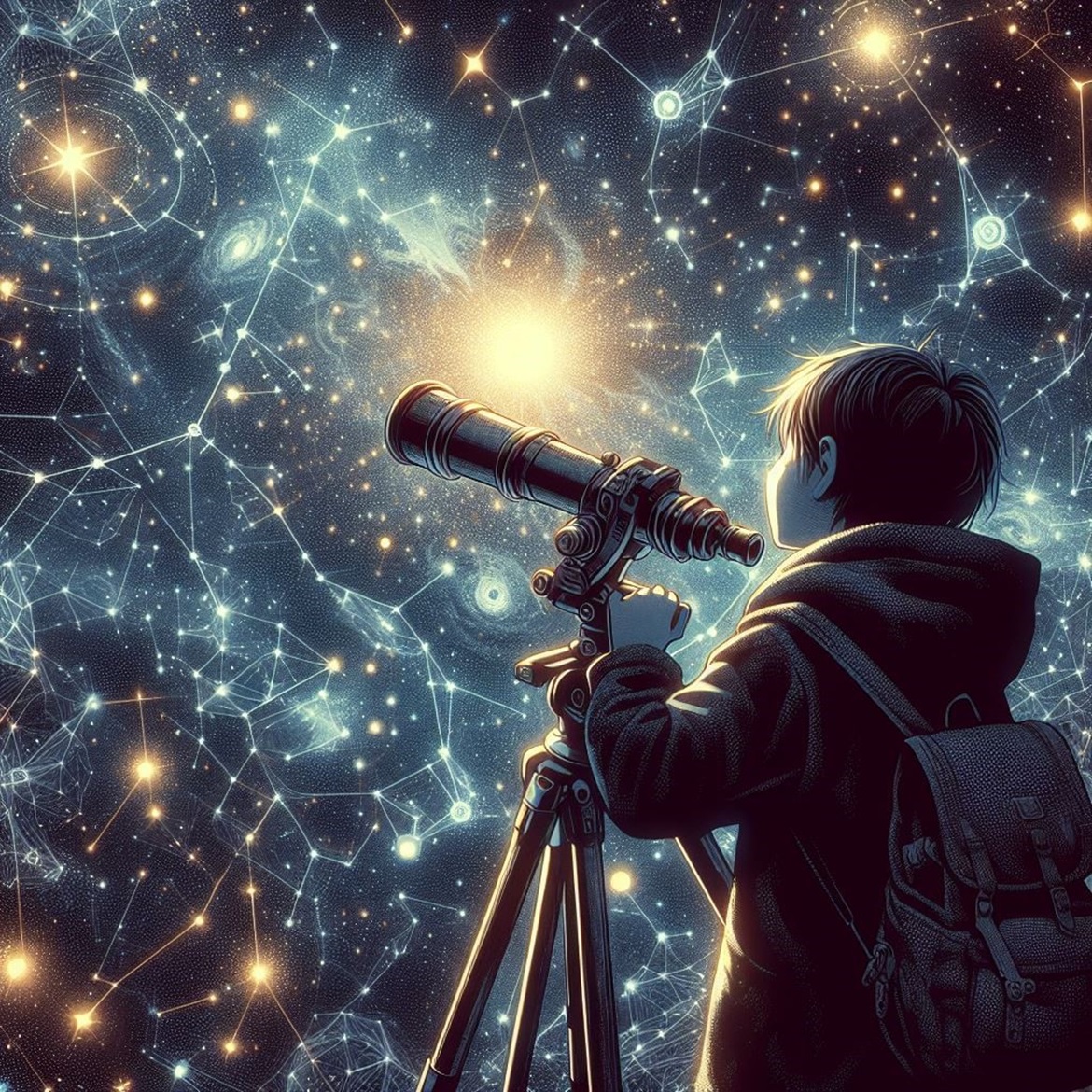In the quaint little suburb of Everdove, where the biggest scandal hitherto had been the Great Jellybean Shortage of ’08, Tom and Julia Clarkson had just welcomed their third marvel into the world. A bouncing baby who, for the initial weeks of its earthly existence, was simply referred to as “The Baby”. Not for lack of trying, mind you. Tom and Julia had spun the wheel of names more times than a heavyweight boxer’s head, but each suggestion felt like a mismatched sock.
It wasn’t until one fateful Sunday, under a sky so playful it decided to dabble in a bit of both sun and rain. They settled on a name so unusual, it could’ve been plucked from a hat filled with rejected superhero aliases. They decided to host a garden party to announce the name, which, in hindsight, was like lighting a firework in a library—startling and bound to draw attention.
As the family gathered, buzzing with the sort of anticipation usually reserved for unclaimed lottery tickets, Tom cleared his throat. The hush that settled was practically tangible. “We’ve named him ‘Quasar Hyperloop Clarkson’,” he announced, with the pride of a man who’s just solved a Rubik’s cube blindfolded.
The silence was deafening. It was as if the entire world had suddenly been vacuum-sealed. Mrs. Clarkson, senior, dropped her fork, sending it clattering against her plate in a desperate plea for normalcy.
“You can’t name your baby that!” Aunt Edna gasped, the statement erupting from her like soda from a shaken can.
Tom smiled, an oasis of calm in the bewildered desert. “But we already have.”
The air was thick with incredulity, seasoned lightly with a dusting of outrage. “Why on earth would you choose such a… such an unconventional name?” Tom’s brother, Mark, managed to sputter, his face a masterpiece of confusion.
“Ah,” Tom said, as if he had been waiting just for this moment. “Because, much like a quasar, our boy will be brilliant, unique, and immensely powerful. And the ‘Hyperloop’ part, well, that’s because we believe he will bring people closer, moving through life with incredible speed and efficiency.”
Julia nodded, her agreement silent but solid, a lighthouse guiding the way through tumultuous seas.
The explanation hung in the air, challenging decades of Johns and Janes, a velvet glove thrown down to tradition. Some family members exchanged skeptical looks, their expressions a parade of raised eyebrows and pursed lips. Others, however, began to thaw, intrigued by the novel idea that a name could be not only a label but a wish, a blessing for the future.
And so, as the afternoon waned, a discussion unfolded like a roadmap, exploring the significance of names, their impact on identity, and the ancient tradition of imbuing offspring with aspirational monikers. Ancient warriors were named for strength, scholars for wisdom. Was ‘Quasar Hyperloop’ really that different?
The debate swirled around the garden like leaves caught in a playful gust, touching on cultural precedents, on the power of individuality, and the bounds of parental ambition. Granny Clarkson, who’d been silent, a sphinx in her lawn chair, finally spoke up, her voice carrying the weight of experience like a well-weathered tome. “In my day, we named children after relatives, hoping they’d inherit their spirit. But times are a-changing. Maybe it’s not about looking back, but forward.”
This philosophical nugget, coming from the matriarch, seemed to turn the tide. One by one, relatives began to express not just acceptance, but excitement for the path this child, Quasar Hyperloop, might carve through the universe.
As dusk pulled its purple shawl tighter around the world, the garden party transformed. Names of stars and theoretical physics phenomena were bandied about with laughter, the family now competing to come up with the most outlandishly appropriate names for hypothetical future siblings. “Nebula Speedracer,” offered Cousin Pete, a suggestion that won him a playful nudge and a spilled drink.
In the end, the evening wasn’t just a name reveal; it became a testament to the power of open hearts and the endless potential of the human spirit. The Clarkson family, once a collection of traditionalists and skeptics, had ventured into uncharted territory, guided by the beacon that was little Quasar Hyperloop.
But life, as it is wont to do, moved on. Quasar grew, unfurling like a sail in the brisk wind of his parents’ love and ambition. His name, rather than being a stumbling block, became a piece of lore, the cornerstone of his personal legend. Far from being bullied, as Aunt Edna had fearfully predicted, Quasar became a symbol of innovation and curiosity in his school. Teachers smiled when they called on him, and classmates were eager to partner with someone so emblematically unique.
Tom and Julia watched, amazed, as their son defied gravity—metaphorically, of course. Their decision, once a spark of whimsy, was now a beam of light shooting across the tapestry of their lives, irrefutable proof that names could indeed shape destinies.
Years spiraled like leaves in an autumn dance, and Quasar Hyperloop Clarkson ventured into the world armed with a degree in astrophysics, his eyes set on the stars that had christened him. The kid with the outlandish name was now the man leading the charge into a new era of space exploration; his name no longer a question but a statement, a self-fulfilling prophecy.
One evening, under the velvet dome of a night sky embroidered with celestial wonders, Tom and Julia received a call. It was Quasar, his voice crackling with excitement across the static of distance and emotion. “Mom, Dad, I’ve been selected to join the first manned mission to Mars. I’ll be piloting the Hyperloop II spacecraft.”
The news, so fantastical and yet so real, swirled around them—a galaxy of pride, joy, and an inkling of parental anxiety. But above all, it was affirmation, a cosmic nod to the road less traveled, to the bravery of naming a child after dreams and distant lights.
As they prepared for the farewell, amid the buzz of media and the groundswell of global excitement, a surprise announcement was made. The Mars base, upon successful establishment, would be named “Quasar Station” in honor of not just the man but also the idea he represented: that reaching for the impossible, guided by a beacon of hope and individuality, can indeed transform dreams into reality.
The Clarkson family stood, hand in hand, eyes moist and hearts ablaze with pride, as Quasar Hyperloop Clarkson boarded the spacecraft named after him. The engines roared to life, a dragon’s breath igniting the path to the stars, and as the ship pierced through the atmosphere, a banner unfurled silently back on Earth, bearing the words, “Dare to Name, Dare to Dream.”
In the hush that followed the launch, a realization settled softly upon the world like the first snow. Names, imbued with hope and vision, could indeed be the compasses guiding humanity not just across the dark seas of doubt and tradition, but into the bright, uncharted spaces of tomorrow.
And somewhere, in the interstellar silence, a beacon named Quasar Hyperloop Clarkson blazed a trail into the unknown, a testament to the power of names, dreams, and the unyielding human spirit to reach beyond the confines of the Earth and into the vast, starry embrace of the cosmos.
The surprise, however, was yet to come. For upon Quasar’s return, Earth awaited a revelation that would once again tilt the axis of the mundane. Quasar introduced to the world a companion from the stars, a testament to the universality of connection and the boundless potential of exploration. The message was clear: the universe, in its infinite expansiveness, was ready for humanity, so long as we dared to dream, to reach, and to name the unknown with hope and courage.
Thus, the Clarkson legacy, encapsulated in the name Quasar Hyperloop, became not just a chapter in humanity’s ascent to the stars but a symbol of boundless potential, of the courage to embrace the unknown with open hearts and daring dreams. And in the annals of history, the tale of a boy named after the cosmos and his journey into the heart of it would be retold, inspiring generations to cast their gaze upward, toward the stars, armed with the audacity to dream big, name bravely, and explore the uncharted with hope as their compass.




